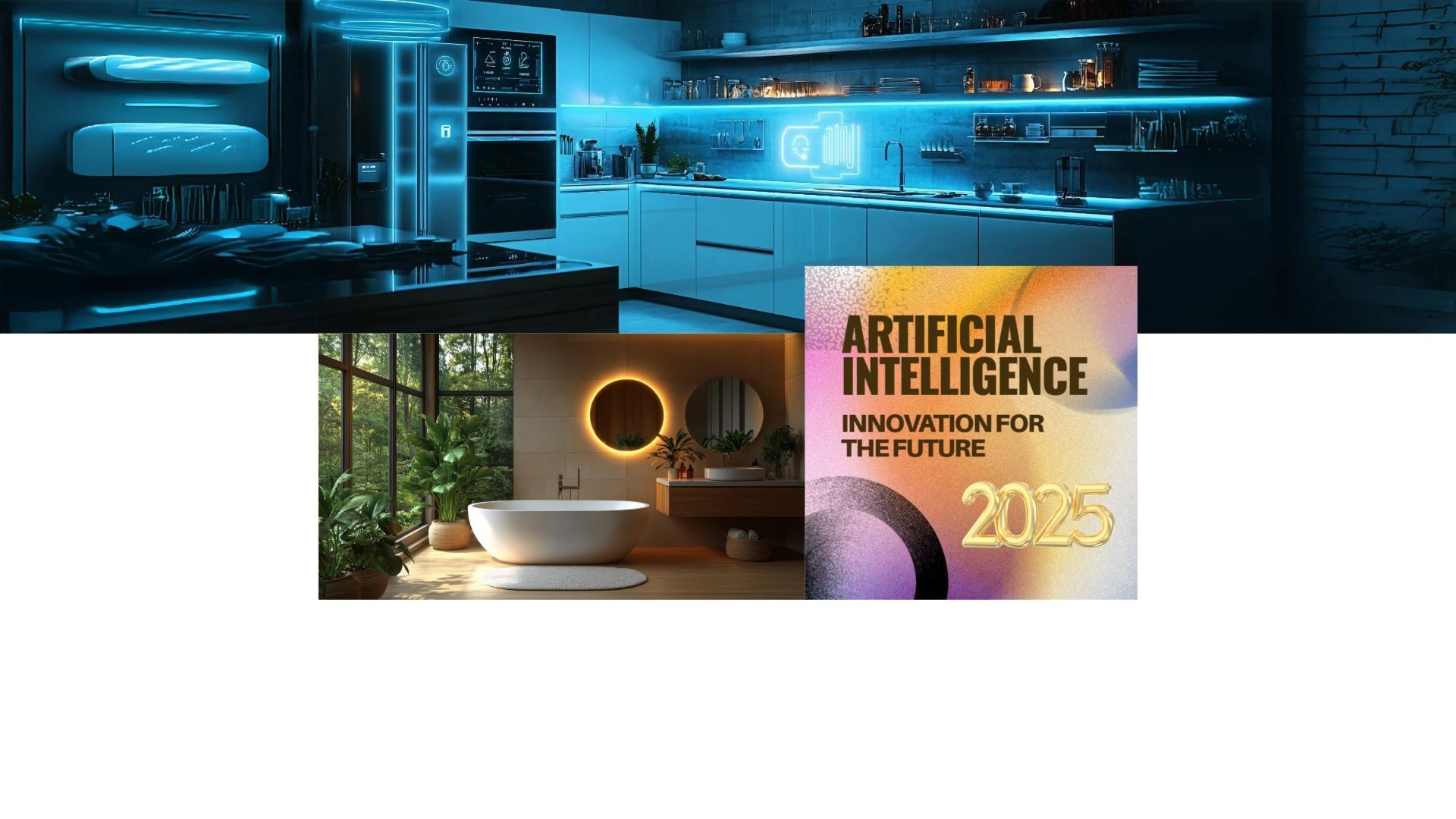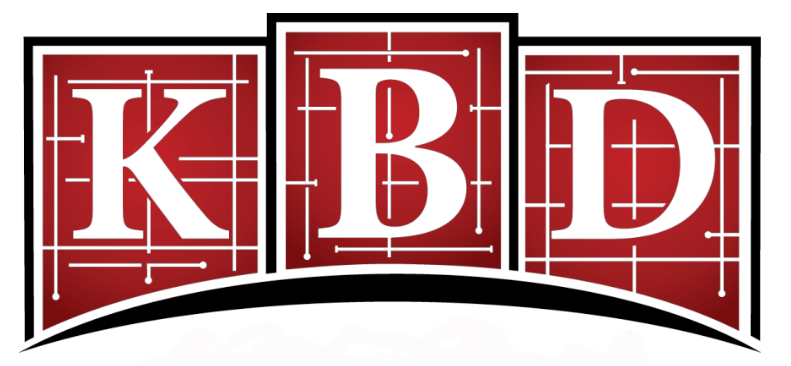Blog
The Future of AI in Home Kitchens and Bathrooms:
What to Expect in 2025

As technology continues to evolve at a rapid pace, artificial intelligence (AI) is poised to transform every corner of our homes, including the heart of the house—the kitchen and bathroom. These two spaces, traditionally seen as functional areas, are set to become smarter, more efficient, and more personalized than ever before. By 2025, AI integration in these areas will redefine home living, bringing with it unprecedented convenience, customization, and energy efficiency.
1. AI-Driven Appliances and Fixtures
In the kitchen, smart appliances have already started reshaping how we cook, clean, and manage groceries. By 2025, AI will take these appliances to the next level. Imagine an oven that not only bakes your dish to perfection but adjusts the cooking time and temperature based on the specific ingredients you're using. AI-powered refrigerators will go beyond tracking expiration dates to automatically suggest recipes based on what's inside, minimizing food waste and helping users maintain a balanced diet. These appliances will use data from personal dietary preferences and past eating habits to recommend meals, creating an increasingly tailored culinary experience.
The bathroom, too, is seeing a wave of AI-powered fixtures. Smart mirrors with integrated AI will serve as personal wellness hubs. They’ll analyze your skin, track health metrics, and suggest grooming routines or skincare products. Additionally, showers and baths will integrate AI technology to set personalized water temperatures, lighting, and even aromatherapy preferences, offering an ideal way to unwind while conserving water and energy.
2. Voice and Gesture Controls
Voice-activated assistants like Amazon Alexa and Google Assistant are already making their way into the kitchen and bathroom, but the integration is set to deepen by 2025. These assistants will move beyond timers and reminders, acting as seamless control centers for various AI-driven appliances and fixtures. Homeowners will be able to start their coffee maker, adjust lighting, and even run a diagnostic on their oven—all with a simple voice command.
Gesture control, another emerging technology, is expected to make a splash in the kitchen and bathroom as well. Imagine having a sensor-activated sink that turns on with a wave of your hand or a refrigerator that opens when it senses you standing nearby with your hands full. These technologies will streamline daily tasks while reducing the spread of germs and improving overall hygiene, particularly useful in high-touch areas like kitchens and bathrooms.
3. Enhanced Safety and Accessibility
AI’s role in enhancing safety is also a significant area of development. By 2025, we can expect AI-enabled smoke and gas detectors in kitchens that do more than sound alarms. These detectors will communicate directly with appliances, shutting off stoves or ovens if they detect potential hazards like unattended cooking or excessive smoke. Moreover, AI-powered monitors could alert homeowners via mobile devices about potential issues, offering peace of mind when they’re away from home.
In bathrooms, AI-powered features will improve accessibility and safety for aging populations or those with limited mobility. Expect to see smart bathtubs and showers equipped with slip detection and automatic emergency alerts. Many manufacturers are already working on voice-activated faucets and cabinets that open with a simple command, making these spaces more accessible for everyone.
4. Sustainability and Resource Management
Sustainability is a significant driver of AI innovation in home kitchens and bathrooms. By 2025, homeowners can expect to see AI systems that analyze water and energy usage patterns, offering personalized recommendations to reduce consumption and costs. In the kitchen, AI-powered dishwashers and washing machines will optimize water usage based on the load, ensuring minimal waste. Similarly, AI-enhanced thermostats and smart windows will maintain optimal temperature and ventilation, enhancing energy efficiency in both spaces.
Waste reduction will also become a focal point of AI innovation. Some refrigerators, for instance, will come with integrated AI systems capable of analyzing food items to prevent spoilage. In bathrooms, water-saving technologies will track water flow and temperature to conserve water, while smart lighting systems will automatically adjust brightness based on natural light levels, contributing to significant energy savings.
5. Hyper-Personalization Through Data
One of AI’s most powerful capabilities lies in its ability to learn from user data, creating hyper-personalized experiences. By 2025, kitchens and bathrooms will use data gathered over time to adjust to individual preferences seamlessly. For example, an AI-enabled coffee machine could remember your morning routine and have your coffee ready just the way you like it, precisely when you need it. Similarly, a bathroom mirror with AI capabilities could suggest skincare products or routines based on environmental factors, previous usage, and skin health patterns.
These systems will rely on extensive, anonymized data to fine-tune every interaction, ensuring they adapt to evolving user needs. This personalization will also support wellness, as AI-powered scales, mirrors, and sensors will track health indicators such as hydration, weight, and other biometric data, offering insights and suggestions for a healthier lifestyle.
6. The Rise of the Connected Ecosystem
AI will serve as the backbone of an interconnected home ecosystem, with the kitchen and bathroom as key nodes in this network. By 2025, expect to see greater integration among various smart devices, facilitated by AI platforms that unify the controls of all appliances, fixtures, and systems. This means that a single app or voice command could control every connected device, from adjusting the lighting to scheduling the coffee maker or even running a full kitchen clean-up routine at night.
This connected ecosystem will enhance convenience and allow for more efficient resource management. Homeowners can expect seamless device interactions, where information from one device, such as a bathroom scale, could inform another device, like a fitness app, ensuring holistic wellness management.
7. Privacy and Security Considerations
As AI becomes more ingrained in our kitchens and bathrooms, privacy and security will be a top priority. The data that AI relies on to enhance our experiences—such as health metrics, dietary preferences, and usage patterns—will need to be stored securely. Homeowners can expect manufacturers to introduce enhanced security protocols by 2025, including data encryption and privacy-focused design. This will help ensure that AI-driven convenience doesn’t come at the expense of personal security.
Conclusion
By 2025, AI is expected to redefine how we experience our kitchens and bathrooms. From personalized appliances to connected ecosystems and enhanced safety, these innovations will transform these spaces into high-tech havens of comfort and efficiency. While we embrace this futuristic vision, it’s essential to consider privacy and security measures to ensure these benefits enhance our lives without compromising our personal information. The AI-driven kitchen and bathroom are just around the corner, promising a new level of convenience and customization that will redefine the very fabric of our homes.

